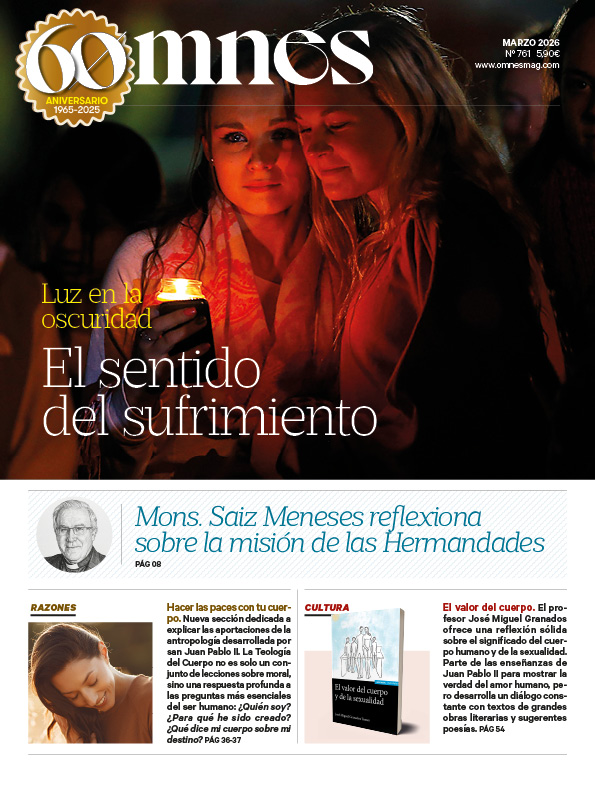"It is true that we are a generation without God, and we have been given no other alternatives than consumption and work". These are the words of Aixa de la Cruz, a writer born in Bilbao in 1988, who points out that she has never had contact with any religion for most of her life. She went on to say: "What do you have to satiate yourself with? With jobs that have to become identitarian for you to be able to bear them or with giving your time to something you can't bear to do in exchange for money for consumption. That's why we are desperately looking for therapies and retreats, to find some kind of transcendence that reminds us that we are here for something more." It was a conversation for El País with June Fernandez, director of a feminist magazine, who, for her part, had just confessed to being an "agnostic, a spiritual orphan".
In another interview, De la Cruz argues that his parents' generation in Spain broke with Catholicism mainly because of bad experiences with educational institutions or for opposing Francoism, which, in a more or less confessional society, meant breaking with the spiritual in general. And then, their children -we- were left out in the open, at the mercy of any flute player who would intone a minimally spiritual melody, or at the mercy of any pseudo-religious discourse that appealed to that thirst of ours. Pope Francis referred to this community of wanderers, who are a little bit all of us, as those who "secretly seek God, moved by a longing for his face" (Evangelii Gaudium, n. 14).
Going back to the beginning, what the writer intuits is that, with all spiritual horizons gone, we tend to put in the place of God anything we have at hand that promises us happiness: money, work, consumption; we can add sex or social status. And this process would end up drying us up spiritually. In a way, all the preaching of Jesus - and, if we want to exaggerate, the whole Judeo-Christian tradition - is aimed precisely at putting us on our guard against idolatry, to put us on our guard against this instinctive movement to replace the authentically religious with anything.
We can recall those words of Jesus about the impossibility of serving God and money (Mt 6:24), or those others about not treasuring anything earthly, but rather working for that which does not corrode (Jn 6:27). However, that same week that I was reading Aixa de la Cruz, the Church in its liturgy had us read other more surprising words from the Gospel: a person cannot be a disciple of Christ if he does not love God more than his father, mother, wife, husband, son or daughter (Mt 10:37). And what initially seems exaggerated to us, in a second moment begins to make sense: because in the "generation without God" we also tend to idolize those relationships that, of course, shelter us, but we have experienced that we cannot burden them with the responsibility that only God has. We all experience so many cases of affective dependencies that arise precisely because we cling to any buoy that floats, even if it is another human being.
Perhaps because of all of the above, the posture we use to pray is often that of joining our hands together: so as not to hold ourselves where it is not meant to be. Although many times in the Bible it may seem that God capriciously claims for himself the first place, in reality he does it out of pure generosity towards us: to avoid us the anxiety of confusing the altar; to avoid us the disappointment of believing that we had reached port, but soon find ourselves, once again, adrift.








